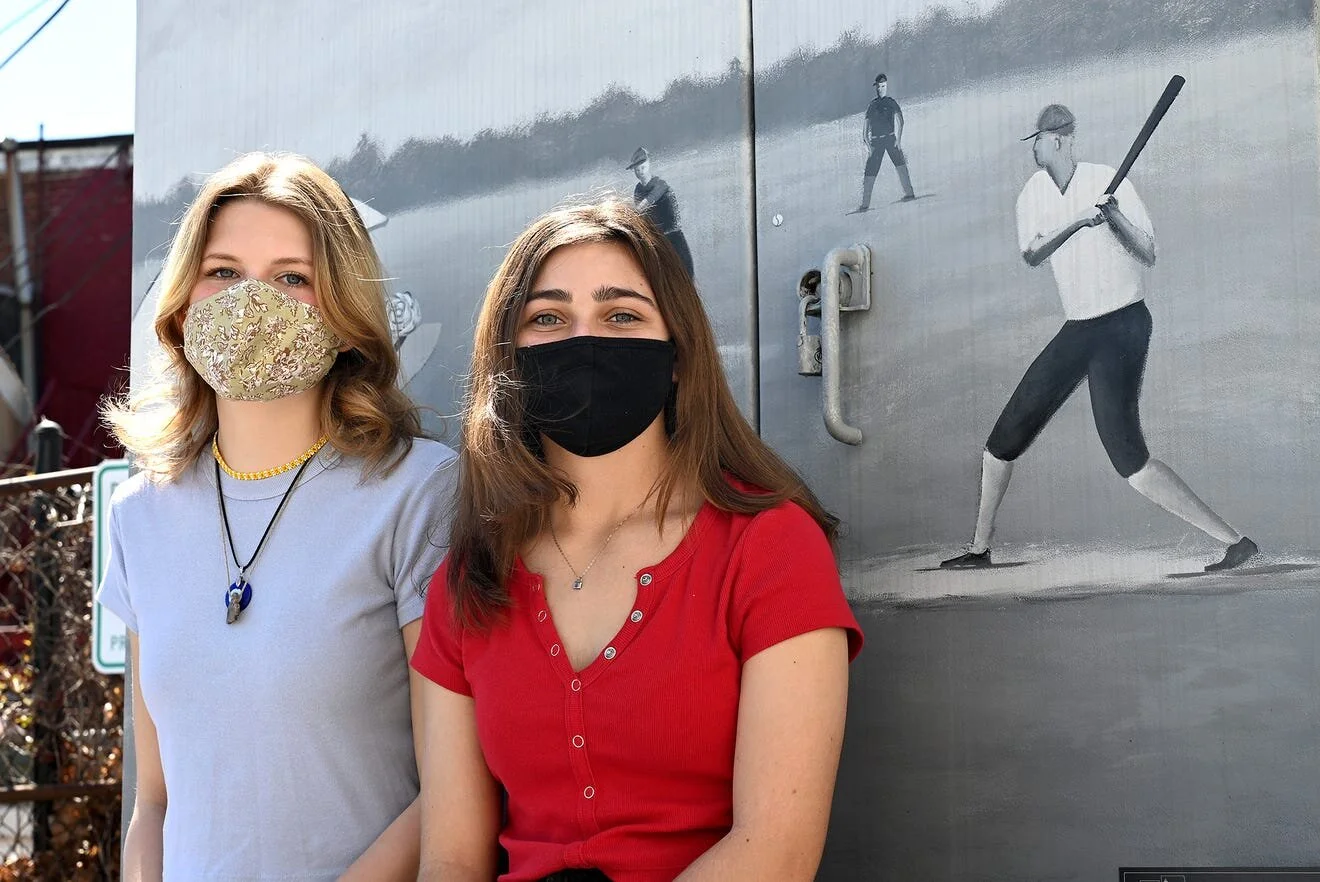NHS and Local Students Partner on Remembering Harwood
April 15, 2021 — We’re thrilled to partner with Natick High School students and community members to remember the Harwood Baseball Factory. Thanks to the MetroWest Daily News for their feature on the project. Do you have a story about the Harwood Baseball Factory to share? Please let us know: contact@natickhistoricalsociety.org
Natick Historical Society receives Digital Capacity Grant from Mass Humanities, Massachusetts Cultural Council
The Natick Historical Society has been awarded a Digital Capacity grant of $2,500 from Mass Humanities, the state-based affiliate of the National Endowment for the Humanities, for its upcoming virtual education initiative: On This Land Online. Funding from Mass Humanities has been provided through the Massachusetts Cultural Council. The Natick Historical Society would also like to thank Middlesex Savings Bank for its $1,000 sponsorship and the generous private donors whose contributions will bring this program to life.
On This Land Online will give more than 500 Natick third-graders virtual access to film clips, artifacts, documents, maps, and other materials detailing Natick’s past. These digital learning modules will enable third grade teachers to meet curricular goals whether they are teaching remotely, in-person, or in a hybrid model. Three of these modules will be ready by June 1 so they can be used before the end of the school year. The fourth module will be ready by August 1, for use in the 2021-2022 academic year. All modules will be available to complement student learning for many years to come.
For some of Natick’s students, the third grade field trip marks their first visit to a museum, their first close encounter with an artifact, and/or their first opportunity to recognize that the land they walk on everyday has a history. On This Land Online will ensure that those “firsts” aren’t missed, and that, in the post-pandemic era, future “firsts” are enhanced with supplementary NHS digital learning modules.
Founded in 1870, the Natick Historical Society (NHS) is one of the oldest local historical societies in Massachusetts. Today, the NHS operates a museum and archives and serves a growing number of community members, scholars, and young people by offering (increasingly virtual) programs, exhibits, and research services, as well as by bringing local history to community projects and events. Since its incorporation, the NHS has remained an independent nonprofit that receives no public funds.
Do you Remember Harwood in Natick?
The Natick Historical Society is delighted to partner with a former Natick resident and researcher, students from Natick High School, and community members to create a short film about the history of the Harwood Baseball Factory in Natick and how it is remembered today.
Several years ago, Facebook exchanges inspired Emily Rosenthal about the Harwood Baseball Factory in her hometown of Natick. She began seeking out and collecting memories shared by former and current Natick residents about what it was like to grow up in the shadows of the world’s first baseball factory.
Some remembered buying half-price balls to play pick-up games, others remembered the smell of the leather, or how their mother or grandmother stitched balls from home. Do you have a memory of the Harwood Factory that you would like to share?
We would love to hear from you. CLICK HERE to read more about how to share your memory with us.
We’ll be collecting memories until April 15, 2021.
Highlighting New Voices from Natick's Past
Historically, societies like the Natick Historical Society have focused on collecting artifacts and documents telling stories about wealthy and influential people. “While these stories are important,” NHS Director Niki Lefebvre says, “there is much more to tell about Natick’s past.” In 2021, the NHS will focus on developing new ways to build trust among historically underrepresented groups, including Black and Indigenous people, people of color, and immigrant communities. “We want to start working towards painting a more inclusive and accurate picture of Natick’s history,” Lefebvre says.
We'd love to hear from you if you have ideas or stories to share with us! Please email: contact@natickhistoricalsociety.org
To learn more about what to look for from the NHS in 2021, check out this story in the Natick Town Pages.
Remembering Jim Morley
We are saddened to announce the passing of James Morley, scholar, author, and transformational leader of the Natick Historical Society (NHS), on September 27. During Jim’s decade on the NHS board, including five years as president, he led the introduction of professional staff to the organization, the early re-envisioning of the museum space, and a reawakening of community interest in Natick history.
He was a tenacious researcher with a remarkable depth of knowledge of Natick's history. A compelling storyteller, he made history accessible, weaving together the threads of Natick’s story for countless audiences.
He was the author of three books on Natick's history, including From Many Backgrounds (2007), Hometown Natick, 1945-2000 (2011), and the comprehensive Natick 1651-2000: The Many Lives of a Storied New England Town (2019).
Jim Morley moved to Natick with his wife, Barbara, in 1999 after retiring from Columbia University, though it was in many ways a homecoming. In his genealogical research, he traced his ancestry to James Draper. Draper, who arrived in Massachusetts in 1636, was a member of John Eliot’s church in Roxbury, and his descendants once owned Draper Farm on the west side of Pegan Hill.
Our thoughts are with his family.
Natick Historical Society Statement on the Natick Town Seal
It is important to understand the history of Natick’s town seal and how it has changed over time. Natick’s current town seal reflects a view of Natick’s founding as it was generally understood in 1951. Over the last 70 years, historians have shed new light on the town's early history. The Natick Historical Society is prepared to provide research and documentation that will aid the Town in its deliberations as to whether or not the Town Seal should be kept, revised, or replaced.
The Natick Historical Society archives all town seals and will continue to do so any time revisions are incorporated, or new seals are adopted.
Click HERE to learn about the history of Natick’s town seals.
Watch "Reading Frederick Douglass"
On Thursday, July 2, members of the Natick community came together on the Morse Institute Library lawn for a shared public reading of Frederick Douglass’ famous speech, “What to the Slave is the Fourth of July?” from 1852. Inspired by the Mass Humanities’ Reading Frederick Douglass series, the Natick Historical Society gathered fifteen young people from Natick schools to take turns reading portions of Douglass’ speech.
CLICK HERE to watch a recording of the event by Natick Pegasus.
CLICK HERE to read an article by the Metrowest Daily News covering the event.
CLICK HERE for the full text of the speech courtesy of Mass Humanities.
Thank you to Mass Humanities for the inspiration and resources, Natick Pegasus for filming the event, the Morse Institute Library for lending their space to us, Wellesley College Associate Professor of History Brenna Greer for her introductory remarks, and, of course, to our incredible readers: Laila, Maya, Kevin, Hildy, Alexa, Helen, Tia, Andy, Juliana, Marley, Daniel, Gabe, Ilir, Ellery, and Arwen.
Photographs courtesy of Mike Pojman.














